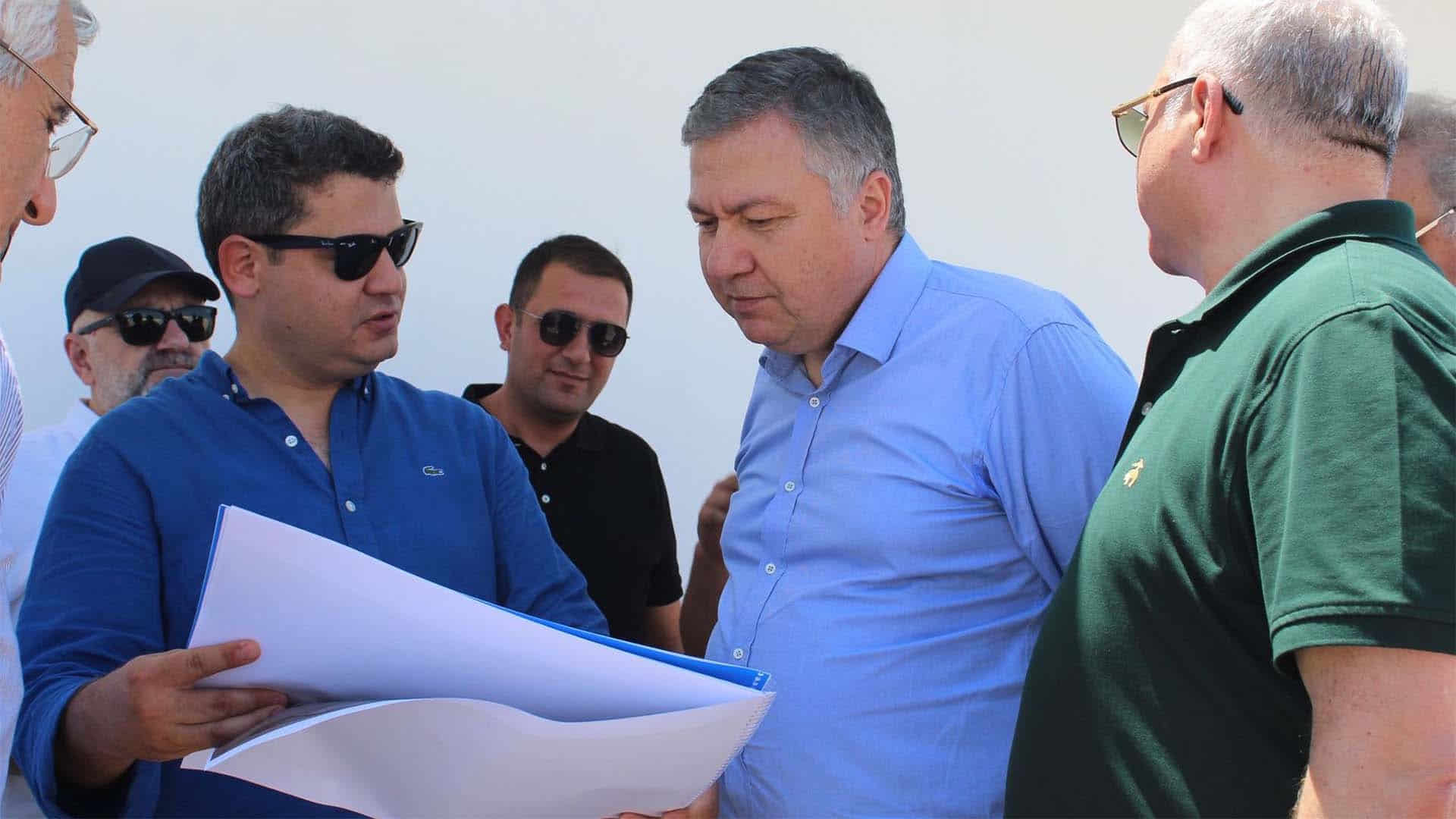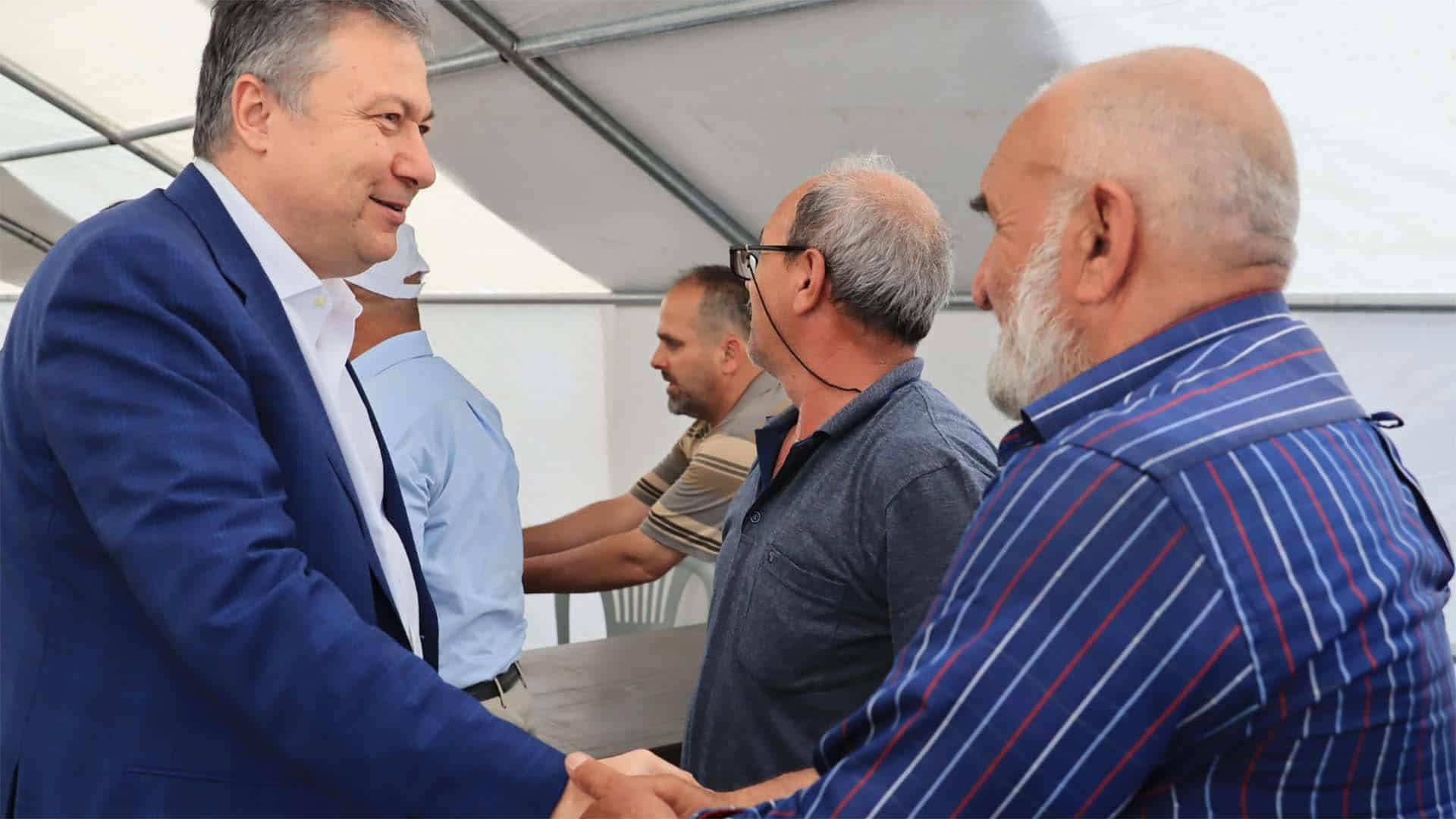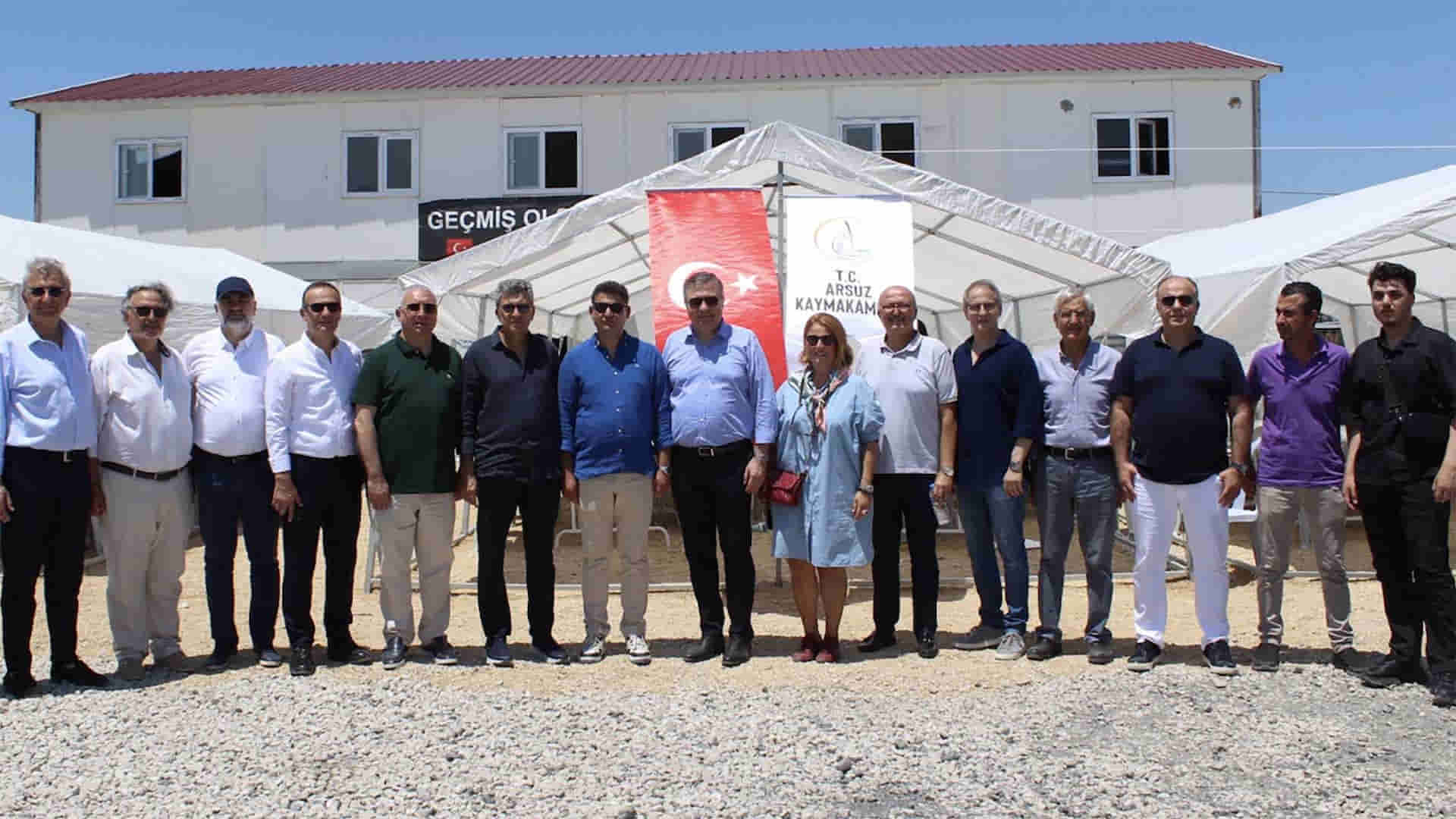The Turkish textile sector continues to work for recovery after the Kahramanmaraş-based earthquakes that shook Türkiye deeply on 6 February and affected 11 provinces. İstanbul Textile and Raw Materials Exporters’ Association (ITHIB) Chairperson of the Board of Directors Ahmet Öksüz, together with ITHIB Board Members, visited Kahramanmaraş and Hatay and inspected the works carried out in the earthquake zones and the latest situation of the industry on-site. Öksüz, visiting the factories and evaluating the situation, said; “In the process that developed after the earthquake, 70 percent of the production was restarted. We continue to produce and add value to Türkiye.”

Incentives should be given for returning to the earthquake zone
Stating that the textile sector suffered great damage from the earthquake disaster, Ahmet Öksüz emphasised that Kahramanmaraş, the epicentre of the earthquake, has an important place in the exports of the textile sector and is the biggest city of Türkiye in terms of production power. Noting that the companies in Kahramanmaraş, which is the main supplier of yarn and fabric for the Turkish textile and ready-to-wear sectors, suffered great damage, Öksüz said that they have been working since day one to heal the wounds and recover. He reminded that the Turkish textile sector is among the leading countries in the world with its modern production infrastructures and integrated production power and continued his words as follows:
“We have a strong production and export network in all sub-product groups of our sector. It is of great importance to support the factories and producers in the regions affected by the earthquake. Unfortunately, there are still enterprises in the earthquake regions that cannot operate at full capacity because they cannot provide employment. In this context, in order to increase employment in the earthquake region, no deductions should be made from the taxes paid by our workers and additional incentive mechanisms should be developed to increase reverse migration. We need these incentives in order to maintain our position and competitiveness in the world. I would like to say that we are one of the most important sectors of Türkiye not only with our production power or exports, but also with our employment capacity. We will continue to contribute to our country and nation in the future.”
“We cannot reflect our costs on the product price as the textile sector”
Ahmet Öksüz reminded that the Turkish textile industry ended the year 2022 with exports of 12.9 billion dollars and that they exported 4.9 billion dollars in the first 5 months of 2023, and said that they aim to maintain the current level by making 13 billion dollars worth of exports at the end of the year. Stating that the priority of the textile sector is not to lose market share in international competition and to increase its share in the global market, Öksüz underlined that the sector is experiencing difficulties due to the increase in production costs. He said: “Production costs are one of the issues that affect our textile sector the most. As the sector, we have conveyed to our ministries that energy costs have reached a level that will stop the production of our companies. Thanks to our government, energy prices have been reduced to relatively reasonable levels with successive improvements. However, the minimum wage increase is also one of the issues affecting our sector. Our production costs are much higher than our competitors in Asia, North Africa and the Turkic Republics. Unfortunately, we cannot reflect these costs to our global customers. Because there is a contraction in demand on a global scale.”

“Urgent measures should be taken against subsidised imports”
Ahmet Öksüz, stating that China suffered great damage especially in the European and US markets during the pandemic process, pointed out that China subsidised its companies at very important levels in order to maintain its share in its existing markets with the end of the pandemic. He said: “They are acting very aggressively. China’s subsidies not only affect our exports, but also our domestic market production. China also exports a very important level of textile products to Türkiye. In 2022, unfortunately, we had a foreign trade deficit of over 2 billion dollars. Moreover, our textile sector has always been a source of pride for Türkiye with its foreign trade surplus; a sector that has brought foreign currency to Türkiye.” In this context, Öksüz stated that their expectations from the ministries are to protect employment and production capacities established with billions of dollars of investment by taking an urgent measure against imports.

